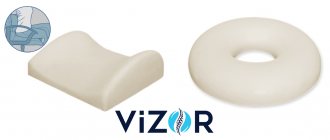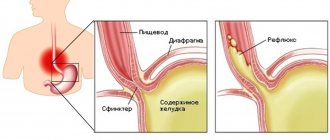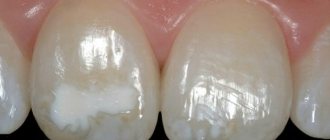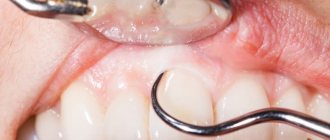general characteristics
A pathological disorder of taste perception is called dysgeusia.
Such a “perversion” of taste sensations can be a sign of the development of neurological, hormonal, mental disorders and other diseases, including those caused by a deficiency of certain substances in the body. If the taste of the products remains unchanged, this diagnosis can be excluded. In this case, we are talking about the temporary persistence of an unusual taste in the mouth, and most often the problem disappears when the cause of its appearance is eliminated.
Taste of Metal
If you feel like you are eating metal, this is also a signal. Sometimes people mistake dry mouth for this taste, the therapist says, but there are situations where a metallic sensation indicates a developing problem. “Among the diseases that can affect its appearance are diseases of the sinuses and oral cavity, bacterial infections, and vitamin B12 deficiency. In addition, a metallic taste when eating food and water can appear with Sjögren’s syndrome (an autoimmune systemic lesion of connective tissue, manifested by the involvement of the exocrine glands in the pathological process),” says Narine Samsonova.
Athletes can also encounter this manifestation, because intense training can also cause similar taste sensations. After exercising in such a situation, people may feel the taste of not only metal, but also soap in their mouth.
Article on the topic
Salty taste. What diseases does this symptom indicate?
Causes of taste in mouth
Throat diseases may be accompanied by an unpleasant taste in the mouth.
Photo: imagepointfr / Depositphotos Reasons for an unusual taste in the mouth may include:
- diseases of the teeth, gums and oral mucosa;
- pathologies of the ENT organs (nasopharynx, paranasal sinuses);
- unbalanced diet;
- diseases of the stomach and gall bladder;
- hormonal and neurological disorders;
- intoxication with chemicals.
In women, a change in taste can be a sign of pregnancy; in men, it is rarely associated with physiological conditions and hormonal surges. At the same time, diseases of the nervous, respiratory systems, or even cancer can lead to the development of symptoms. Doctors will help you understand the cause of the symptom: in this case, an integrated approach to examination and treatment is necessary.
Causes of blood taste in mouth
The characteristic taste of blood most often indicates increased bleeding of the gums. Also, such a taste can be a symptom of diseases of the nasopharynx and paranasal sinuses (sinusitis, frontal sinusitis, sinusitis).
Other reasons for feeling blood in the mouth:
- diseases of the bronchi and lungs (acute bronchitis, pneumonia, pleurisy, lung abscess);
- disorders of the hematopoietic system;
- diabetes;
- renal failure;
- oncological diseases;
- internal bleeding.
In addition, the sensation of blood in the mouth may be associated with diseases of the gastrointestinal tract (GIT):
- esophagitis;
- gastroesophageal reflux disease (GERD);
- chronic gastritis;
- liver pathologies.
The taste of blood may occur due to biting the mucous membranes of the cheeks or tongue. In this case, it is enough to actively rinse your mouth with antiseptic solutions, for example, chlorhexidine, throughout the day.
Causes of bitter taste in mouth
An unpleasant bitter taste may appear in the morning after waking up or several hours after eating.
Common causes of a bitter taste in the mouth:
- Pathologies of the liver and gallbladder (hepatitis, cirrhosis, cholecystitis, cholelithiasis, gallbladder kinks), stagnation of bile - at a certain point, its excess leaves through the bile ducts, enters the stomach and penetrates the esophagus.
- Indigestion. Slowing intestinal motility leads to retention of undigested food in the gastrointestinal tract. This leads to fermentation processes and the appearance of a characteristic taste in the mouth.
- Neurological pathologies (Alzheimer's disease, consequences of traumatic brain injury).
- Pregnancy.
Symptoms can also be caused by hormonal disorders, parasitic infections, or taking certain medications (antibiotics, antiallergic drugs, chemotherapy drugs).
At home you can get rid of the symptom with:
- eating small meals frequently;
- compliance with the water regime;
- rinse your mouth with a spoon of baking soda.
However, after eating, the sensations usually disappear for some time.
Causes of a metallic taste in the mouth
This symptom is often confused with the taste of blood, but other conditions can cause a strong sensation of “metal” in the mouth:
- chemical poisoning with heavy metals (mercury, copper, lead, arsenic);
- taking certain medications (iron supplements for anemia, antiparasitic drugs, pills to lower blood pressure);
- galvanosis - disruption of electrochemical processes in the oral cavity due to metal prostheses, implants, piercings;
- “burning mouth syndrome”, insufficient salivation and dry mouth;
- impaired kidney function (excessive accumulation of metabolic products);
- endocrine diseases (diabetes mellitus, Fig. 1);
- period of hormonal changes (pregnancy, menopause).
The symptom can also appear due to everyday reasons:
- insufficient purification of drinking water;
- storing food in aluminum containers.
To relieve the metallic taste, you can try rinsing your mouth with salt and water, eating foods with intense flavors, and adding more natural spices. It is also important to temporarily switch to cutlery made from non-metallic materials.
Figure 1: A metallic taste in the mouth may indicate a serious medical condition. Source: Verywell Health
Causes of sweet taste in mouth
A sweetish taste that is not associated with an excess of desserts in the diet may be a sign of:
- dental pathologies;
- diabetes mellitus;
- pregnancy;
- problems with the thyroid gland;
- neurological pathologies (stroke, epilepsy);
- GERD (gastroesophageal reflux disease);
- bacterial infections - some microorganisms (streptococci, staphylococci) produce enzymes with a specific taste;
- pesticide poisoning.
You can try to get rid of this feeling by giving up sweets. Also, in the fight against taste, it is necessary to avoid smoking, drink enough fluids throughout the day and carefully observe the rules of oral hygiene.
Causes of acetone taste in the mouth
The reason for this taste and smell of “nail polish remover” from the mouth is most often the excessive content of special substances of fat metabolism - ketone bodies.
As a rule, the symptom appears with diabetes mellitus, but can also accompany other conditions:
- following a keto diet (Fig. 2);
- fasting or drinking too much fluid;
- kidney damage (glomerulonephritis, renal failure);
- excessive alcohol consumption;
- liver pathologies.
Figure 2: Following a keto diet may cause your breath to smell like acetone.
Source: Sewcream / Depositphotos You can get rid of the characteristic smell of acetone using natural breath fresheners, using dental floss and drinking water with lemon.
Important! If you experience a taste of acetone in your mouth, you should reconsider your diet and abandon alternative foods that do not contain sugar - a carbohydrate-free diet often leads to ketoacidosis.
Help before diagnosis
In most cases, the following help to get rid of the symptom:
- keeping the oral cavity clean;
- regular and balanced nutrition;
- cessation of smoking, alcohol abuse;
- drink enough fluid during the day;
- moderate activity after meals.
You can temporarily remove the taste by thoroughly brushing your teeth, rinsing your mouth with water and lemon juice or baking soda, chewing gum, or special mouth fresheners.
When to see a doctor?
Eliminating the cause of the development of a symptom most often completely eliminates all its manifestations, so it is important to consult a doctor in a timely manner (Table 1).
Table 1. Taste in the mouth: when should you seek medical help?
| Type of taste in the mouth | Reasons to see a doctor |
| Taste Blood | If the symptom is not associated with accidental damage to the oral mucosa, you should begin the examination with a trip to the dentist. If necessary, the specialist will refer you to other doctors for consultation. |
| Metallic taste | You need to undergo examination in the toxicology department if the taste appears after poisoning with chemical agents. It is also important to consult a doctor if you suspect bleeding of unknown location or galvanism. |
| Bitter taste | If bitterness in the mouth persists for several days, and is also accompanied by the appearance of plaque, nausea or vomiting, you should make an appointment with a gastroenterologist. This is probably how the body “signals” about disturbances in the gastrointestinal tract. |
| Bitter taste | If your taste changes regularly without connection with the amount of sweets in your diet, you should consult a therapist or endocrinologist. |
| Taste of acetone | You should definitely see an endocrinologist if the symptom occurs due to diabetes. When following a low-carbohydrate diet, it is also important to choose a new diet from a nutritionist. |
Diagnostics
The first step in finding the cause of an unpleasant taste in the mouth should be a trip to the dentist: he will immediately determine the possible connection of the symptom with diseases of the teeth and surrounding tissues.
If the problem does not go away, you should consult a therapist: a specialist will help you understand the likely causes of the symptom. For an accurate diagnosis, the results of the following studies may be needed:
- clinical and biochemical blood tests (liver, kidney tests, glucose levels, lipid profile);
- tests to evaluate thyroid function;
- Ultrasound of the abdominal organs;
- fibrogastroduodenoscopy (FGDS);
- pH-metry of the stomach;
- tests for Helicobacter pylori infection;
- electroencephalography (EEG), magnetic resonance imaging (MRI) of the head.
The choice of diagnostic algorithm depends on the most likely cause of the development of an unpleasant taste in the mouth.
Excessive salivation during pregnancy
During pregnancy, hormonal changes occur in the female body. The main reasons why an expectant mother’s salivation increases.
- Heartburn. When the acid-base balance in the stomach is disturbed, the body begins to produce a lot of saliva. This is a defensive reaction.
- Reaction to medications.
- Toxicosis. To stop gagging, the expectant mother tries to swallow saliva less often. Therefore, it may seem that there is more saliva in the mouth than usual.
A large amount of saliva does not threaten the fetus, however, if this is a consequence of any disease, then the pregnant woman should monitor her condition.
What complications are possible?
- Impaired taste perception of food.
- Dehydration of the body.
- Insomnia, disturbance of psycho-emotional state.
- Deterioration of the skin condition on the face and body.
- Infectious diseases.
Treatment
The best and most effective method of treating a symptom is to eliminate the cause of its occurrence. If the bad taste in your mouth is caused by a dental problem, it is important to get rid of tooth decay or other diseases as soon as possible.
If an unpleasant taste occurs due to pathology of certain organs and metabolic disorders, the doctor prescribes treatment for the underlying disease.
Conservative therapy
Depending on the characteristics of the symptom, to eliminate it, the doctor may prescribe drugs from the following groups:
- antiseptics;
- antacids;
- choleretic drugs;
- hypoglycemic agents;
- antidotes and detoxification drugs.
The doctor selects treatment individually. The treatment regimen depends on the causes of the taste, its severity, concomitant diseases and other features of the clinical case.
Sometimes, to get rid of the taste in the mouth, you have to resort to medications. Photo by JESHOOTS.com: Pexels
Physiotherapy
Methods of physiotherapeutic treatment in cases of unpleasant taste in the mouth help to cope with chronic inflammatory and metabolic processes, and eliminate other symptoms of pathology.
For example, for diseases of the ENT organs, rinsing with sea salt solutions, ultrasound treatment and UV irradiation, and therapeutic inhalations are used.
Warming procedures are contraindicated for patients with acute conditions - inflammation, likelihood of bleeding, severe pain.
Increased salivation: causes and treatment
Hypersalivation - what is it?
Why is there a lot of saliva in the mouth?
Salivation during sleep
Excessive salivation during pregnancy
Treatment of hypersalivation
Saliva is not just a liquid secreted in the mouth. Saliva is involved in the digestion process and protects the body from bacteria. The process of salivation is not controlled by humans. Usually about 2 liters of saliva are produced per day. Under the influence of certain factors, its amount can greatly increase. In this article we will talk about the causes of increased salivation and how to treat it.










